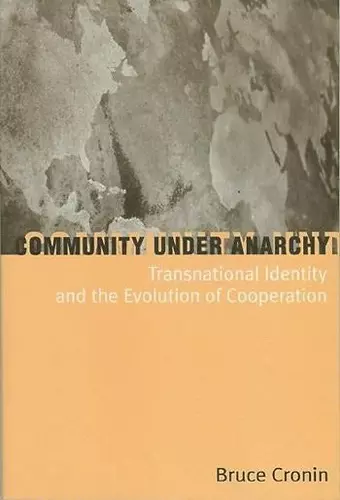Community Under Anarchy
Transnational Identity and the Evolution of Cooperation
Format:Paperback
Publisher:Columbia University Press
Published:7th Sep '99
Currently unavailable, and unfortunately no date known when it will be back

Aims to show how the development of various social identities among political elites leads to cohesive forms of cooperation. This book demonstrates how the cohesive structures evolve from various events and processes to diminish boundaries dividing societies. It also demonstrates how socially derived identities create new roles for state leaders.How do states distinguish friends from enemies, partners from competitors, and communities from outsiders? Community Under Anarchy shows how the development of common social identities among political elites can lead to deeper, more cohesive forms of cooperation than what has been previously envisioned by traditional theories of international relations. Drawing from recent advances in social theory and constructivist approaches, Bruce Cronin demonstrates how these cohesive structures evolve from a series of discrete events and processes that help to diminish the conceptual boundaries dividing societies. Community Under Anarchy supports this thesis through a new and original interpretation of the Concert of Europe, the Holy Alliance, and the political integration of Italy and Germany. In the wake of the upheavals created by the French Revolution and the revolutions of 1848, political elites helped to validate new forms of governance by creating transnational reference groups from which they could draw legitimacy. As a result, European states were able to overcome the polarizing effects of anarchy and create a concert system, a common security association, and two amalgamated security communities. The empirical cases demonstrate how socially derived identities can shape state preferences and create new roles for state leaders.
This book represents an important contribution to the emerging constructivist literature in international relations dealing with questions of collective identities. -- Thomas Risse, European University Institute, Florence, Italy Political Science Quarterly
ISBN: 9780231115971
Dimensions: unknown
Weight: unknown
270 pages